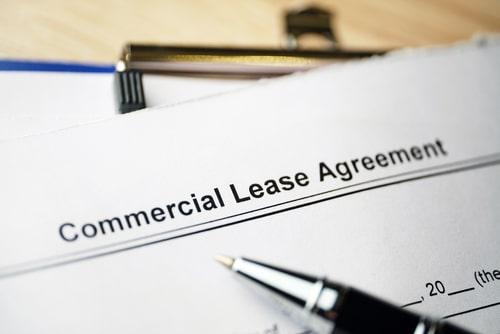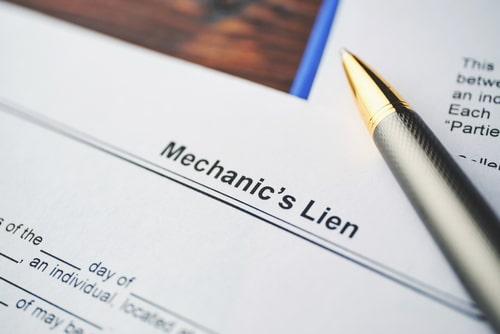Recent Blog Posts
How Do I Know Which Business Structure to Use for my Startup?
 Starting a business is an exciting, if not overwhelming, process. Entrepreneurs eager to make their business dreams a reality must address seemingly countless issues. One of the most crucial questions new business owners will need to answer is how to structure their business. There are several different types of business structures, and each has its own advantages and disadvantages. Fortunately, entrepreneurs do not have to figure all of these legal issues out on their own.
Starting a business is an exciting, if not overwhelming, process. Entrepreneurs eager to make their business dreams a reality must address seemingly countless issues. One of the most crucial questions new business owners will need to answer is how to structure their business. There are several different types of business structures, and each has its own advantages and disadvantages. Fortunately, entrepreneurs do not have to figure all of these legal issues out on their own.
If you want to start a business, contact an experienced business law attorney who can evaluate your short- and long-term goals and help you determine the business entity that will best meet these goals.
Evaluating the Pros and Cons of Each Business Structure
Most people have noticed that companies have letters like "LLC" at the end of their company name, but few give any thought to what these letters mean. However, when you start a business, all of these abbreviations take on a new meaning.
5 Steps to Take Before Selling Your Home
 Most experts agree that it is a seller's market. Homes are in great demand, supply is low, and house prices are skyrocketing. If you are like many people, you may be interested in selling your home. However, selling your home is a major undertaking and it can be easy to make mistakes or overlook responsibilities. As you prepare to sell, consider the following suggestions.
Most experts agree that it is a seller's market. Homes are in great demand, supply is low, and house prices are skyrocketing. If you are like many people, you may be interested in selling your home. However, selling your home is a major undertaking and it can be easy to make mistakes or overlook responsibilities. As you prepare to sell, consider the following suggestions.
Choose an Experienced Real Estate Agent
It is possible to sell your home without a realtor. However, there are many serious risks associated with "for sale by owner" transactions. Usually, these risks outweigh any potential cost savings associated with an FSBO sale. Real estate agents have access to large networks of potential buyers and ample experience with the home selling and buying process. Your agent can help you identify unqualified buyers and negotiate the best price possible.
Retain a Skilled Real Estate Lawyer
Ten Signs that Your Marriage May Be Beyond Saving and Divorce is Imminent
 It can be hard to know when a marriage is broken down irreparably. Spouses may try to reconcile their differences by talking through their problems, undergoing couples counseling, or even agreeing to a trial separation. For some couples, however, these attempts do not work and the marital turmoil continues. The only two people who can know for sure that a marriage is over are the spouses. However, there are often signs that may mean a marriage has deteriorated to a point that divorce becomes the best option.
It can be hard to know when a marriage is broken down irreparably. Spouses may try to reconcile their differences by talking through their problems, undergoing couples counseling, or even agreeing to a trial separation. For some couples, however, these attempts do not work and the marital turmoil continues. The only two people who can know for sure that a marriage is over are the spouses. However, there are often signs that may mean a marriage has deteriorated to a point that divorce becomes the best option.
Issues That May Be Symptomatic of Irretrievable Marital Breakdown
There is no one way to know whether a marriage can be saved or not. Some couples are able to resolve their disagreements and continue a long, healthy marriage. Others realize that their differences cannot be reconciled and decide to divorce. Some signs that may be indicative of an impending divorce include:
- You no longer enjoy being around each other. – Everyone gets annoyed by their spouse once in a while. However, if spouses are going out of their way to avoid each other for long periods of time, this may mean that divorce is the best option.
Should a No Contest Clause Be Included in a Will?
 A last will and testament is a key component in any estate plan. Your will allows you to dictate how your property is distributed to heirs upon your death. It can also be used by parents of minor children to name a guardian should a tragedy occur and the parent dies before the children are adults.
A last will and testament is a key component in any estate plan. Your will allows you to dictate how your property is distributed to heirs upon your death. It can also be used by parents of minor children to name a guardian should a tragedy occur and the parent dies before the children are adults.
The decisions made in a person's will are the testator's decisions to make. However, family members are not always pleased when they learn what a friend or family member's will contains. If a beneficiary doubts the authenticity of a will, they have the right to contest the will in court. A no-contest clause is a provision in a will that discourages beneficiaries from challenging the will in court.
No-Contest Clauses Are Used to Dissuade Heirs from Contesting the Will
There are many valid reasons to contest a will. For example, if an elderly woman suffering from dementia suddenly changes her will to disinherit her children and instead leaves her estate to someone she hardly knows, this is obviously very suspicious. The woman's family may challenge the will based on lack of testamentary capacity.
Startups Can Be Risky Legally and Financially. Here is How to Mitigate the Risk
 If you dream of starting your own business and breaking free from the rigidity of a 9 to 5 job, you may be interested in a startup. Entrepreneurs who intend to start their own business have a great number of issues to contend with. Although television shows like Shark Tank can make it look easy, building a successful startup is a challenging process full of potential pitfalls. Almost 90 percent of all startups eventually fail. However, proper preparation and working with an experienced business law attorney can help you avoid pitfalls and build a thriving business.
If you dream of starting your own business and breaking free from the rigidity of a 9 to 5 job, you may be interested in a startup. Entrepreneurs who intend to start their own business have a great number of issues to contend with. Although television shows like Shark Tank can make it look easy, building a successful startup is a challenging process full of potential pitfalls. Almost 90 percent of all startups eventually fail. However, proper preparation and working with an experienced business law attorney can help you avoid pitfalls and build a thriving business.
Do Not Underestimate the Amount of Capital You Will Need
Most people hoping to start a business greatly underestimate how much money they need to actually start the business. You must consider not only initial costs but ongoing costs. It is also important to have some “cushion” so you can cover any unexpected expenses you face. Bank loans, private loans, and investors are usually the first places entrepreneurs look when building capital.
Red Flags When Signing a Commercial Lease
 Business owners have countless issues to consider when starting or expanding a business. One major concern for many business owners and entrepreneurs is securing a place in which to operate the business. If you are a business owner looking for commercial real estate, it is important to take your time and fully evaluate your options.
Business owners have countless issues to consider when starting or expanding a business. One major concern for many business owners and entrepreneurs is securing a place in which to operate the business. If you are a business owner looking for commercial real estate, it is important to take your time and fully evaluate your options.
Before you sign a commercial real estate lease, it is essential that you have the lease reviewed by a skilled real estate attorney. Your attorney may be able to help you negotiate more favorable terms, and ultimately save you and your business money. Furthermore, your attorney can help you spot red flags that may be signs a commercial lease agreement is not in your best interests.
The Landlord Suggests a Verbal Agreement Will Suffice
As a business owner, you probably already know the importance of getting any business relationship in writing. Unfortunately, even the savviest business owners have been ticked by smooth-talking landlords who assure them they have nothing to worry about. Make sure you get the lease in writing and have your attorney review the lease before signing.
What Are the Benefits of Using Mediation to Resolve My DuPage County Divorce?
 The decision to get divorced is just the beginning of what is often a long and complex process. Divorcing couples must address important financial concerns including ownership of marital assets as well as marital debts. If the couple shares children, they will need to determine the allocation of parental responsibilities and parenting time. It can be exceptionally difficult to have a productive conversation about these issues with someone you are in the middle of divorcing. Old hurts and regrets often steer the conversation off course and lead to arguments instead of resolutions. This is where divorce mediation can be extremely useful.
The decision to get divorced is just the beginning of what is often a long and complex process. Divorcing couples must address important financial concerns including ownership of marital assets as well as marital debts. If the couple shares children, they will need to determine the allocation of parental responsibilities and parenting time. It can be exceptionally difficult to have a productive conversation about these issues with someone you are in the middle of divorcing. Old hurts and regrets often steer the conversation off course and lead to arguments instead of resolutions. This is where divorce mediation can be extremely useful.
The Mediator Will Facilitate a Productive Conversation
Family law mediators are third parties who facilitate productive, solution-oriented conversations during divorce. A mediator can help you and your spouse identify the issues that you agree on and those issues you disagree on and then find creative solutions you can both approve of. Instead of telling you what to do, the mediator helps you and your spouse explore the advantages and disadvantages of various solutions. The mediator may also step in and redirect the conversation when it goes off track. This can help you and your spouse avoid futile arguments that only lessen the chances of an out-of-court agreement.
Top Reasons to Include a Living Will in Your Illinois Estate Plans
 Estate planning is important for anyone of any age or health. Unfortunately, life is nothing if not unpredictable and none of us know what day will be our last. Although it can be an uncomfortable topic to think about, planning for the possibility of incapacitation and death is crucial to protecting your loved ones and ensuring your final wishes are fulfilled. A living will is an advanced directive used to describe your decision regarding end-of-life care and other essential matters.
Estate planning is important for anyone of any age or health. Unfortunately, life is nothing if not unpredictable and none of us know what day will be our last. Although it can be an uncomfortable topic to think about, planning for the possibility of incapacitation and death is crucial to protecting your loved ones and ensuring your final wishes are fulfilled. A living will is an advanced directive used to describe your decision regarding end-of-life care and other essential matters.
A Living Will Ensures Your Medical Wishes Will Be Followed
Most people are familiar with a last will and testament. A will is used to describe how property should be distributed to heirs after someone passes away. However, fewer understand the purpose of a living will. A living will is a document that spells out a person’s wishes regarding medical care at the end of their life. If a person is in a coma, suffers from dementia, or has other disabling medical conditions, he or she may not be able to communicate with doctors and loved ones. A living will is used to make medical decisions about end-of-life care in advance, so there is no question about the types of medical care an individual should receive.
Understanding Mechanics’ Liens on Residential Properties in Illinois
 Illinois law permits contractors, construction professionals, and other parties to place a lien on a residential property for the purposes of collecting past-due payment. The Mechanics Lien Act ensures that contractors and other parties who work on a home are paid for their work. In other words, a mechanic’s lien is collateral for a debt. It is important for any homeowner to understand when a mechanic’s lien may be placed on their home and how to respond to this situation. It is especially crucial for individuals buying a home to understand how a mechanic’s lien can complicate the home-buying process.
Illinois law permits contractors, construction professionals, and other parties to place a lien on a residential property for the purposes of collecting past-due payment. The Mechanics Lien Act ensures that contractors and other parties who work on a home are paid for their work. In other words, a mechanic’s lien is collateral for a debt. It is important for any homeowner to understand when a mechanic’s lien may be placed on their home and how to respond to this situation. It is especially crucial for individuals buying a home to understand how a mechanic’s lien can complicate the home-buying process.
What is a Mechanic’s Lien?
A lien is an action used to ensure the collection of a debt. Liens filed against a real estate property give the creditor interest in the property. This means that the property owner cannot sell or refinance the property until the debt is paid and the lien is lifted. The creditor may also be able to ask the court to compel the sale of the property so the creditor can receive payment from the sale proceeds.
How Is the Probate Process Handled if a Person Did Not Have a Will?
 After a person dies, issues related to their estate will be handled through a legal process known as probate. If the person had a last will and testament, the executor of their estate will file their will in probate court, take a complete inventory of their assets, pay taxes and expenses on behalf of the estate, and distribute the estate’s assets to the person’s beneficiaries. However, in cases in which a person died without a will, their family members or other heirs may be unsure about how these matters will be addressed.
After a person dies, issues related to their estate will be handled through a legal process known as probate. If the person had a last will and testament, the executor of their estate will file their will in probate court, take a complete inventory of their assets, pay taxes and expenses on behalf of the estate, and distribute the estate’s assets to the person’s beneficiaries. However, in cases in which a person died without a will, their family members or other heirs may be unsure about how these matters will be addressed.
Intestate Succession
The probate process will usually be required whether a person had a will or not. In cases where the deceased person did not have a will, someone will need to be appointed as the representative of the estate. This may be a family member or another person who was close to the decedent, and they may ask to be appointed by the probate court that is handling the case. The estate representative will carry out the same duties as a person who was named as an executor in a will.

 630-665-2500
630-665-2500







